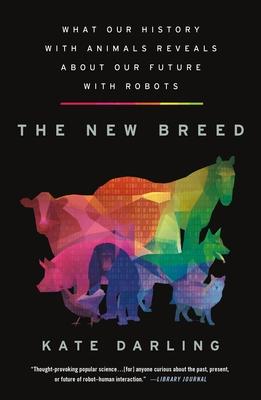For readers of The Second Machine Age or The Soul of an Octopus, a bold, exciting exploration of how building diverse kinds of relationships with robots--inspired by how we interact with animals--could be the key to making our future with robot technology work
There has been a lot of ink devoted to discussions of how robots will replace us and take our jobs. But MIT Media Lab researcher and technology policy expert Kate Darling argues just the opposite, suggesting that treating robots with a bit of humanity, more like the way we treat animals, will actually serve us better. From a social, legal, and ethical perspective, she shows that our current ways of thinking don't leave room for the robot technology that is soon to become part of our everyday routines. Robots are likely to supplement--rather than replace--our own skills and relationships. So if we consider our history of incorporating animals into our work, transportation, military, and even families, we actually have a solid basis for how to contend with this future. A deeply original analysis of our technological future and the ethical dilemmas that await us, The New Breed explains how the treatment of machines can reveal a new understanding of our own history, our own systems, and how we relate--not just to nonhumans, but also to one another.
Book
The New Breed: What Our History with Animals Reveals about Our Future with Robots
by Kate Darling
(Write a Review)
Paperback
$19.99
For readers of The Second Machine Age or The Soul of an Octopus, a bold, exciting exploration of how building diverse kinds of relationships with robots--inspired by how we interact with animals--could be the key to making our future with robot technology work
There has been a lot of ink devoted to discussions of how robots will replace us and take our jobs. But MIT Media Lab researcher and technology policy expert Kate Darling argues just the opposite, suggesting that treating robots with a bit of humanity, more like the way we treat animals, will actually serve us better. From a social, legal, and ethical perspective, she shows that our current ways of thinking don't leave room for the robot technology that is soon to become part of our everyday routines. Robots are likely to supplement--rather than replace--our own skills and relationships. So if we consider our history of incorporating animals into our work, transportation, military, and even families, we actually have a solid basis for how to contend with this future. A deeply original analysis of our technological future and the ethical dilemmas that await us, The New Breed explains how the treatment of machines can reveal a new understanding of our own history, our own systems, and how we relate--not just to nonhumans, but also to one another.Paperback
$19.99